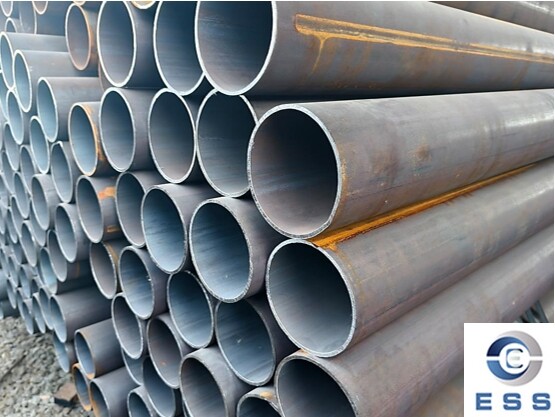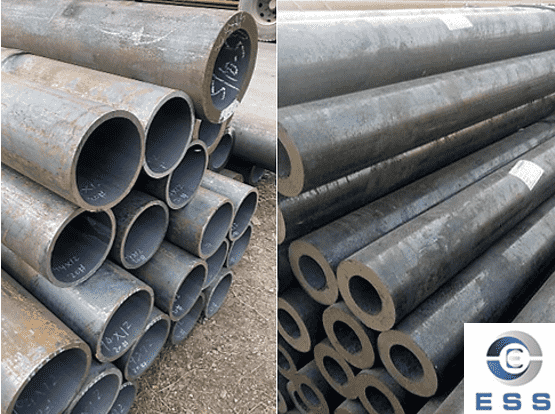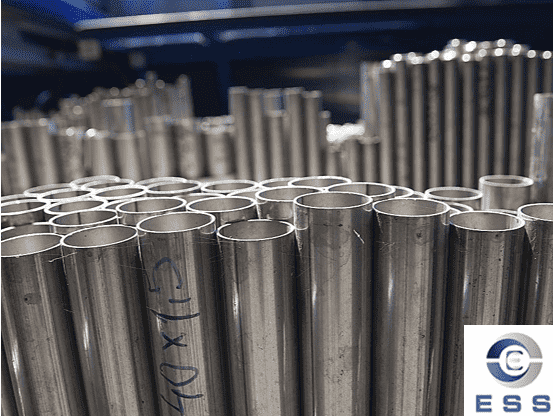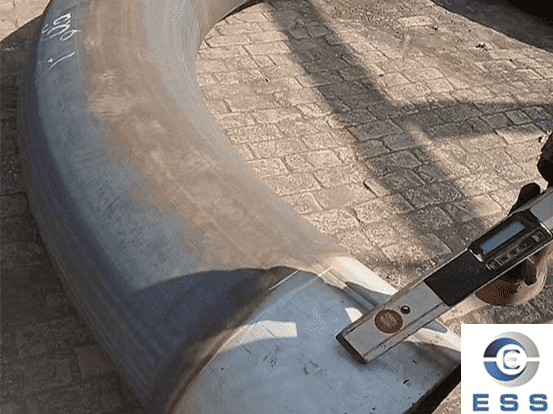
As the core component of the boiler system,
high-pressure boiler
tube carries important missions in many industries such as electricity,
chemical industry, and metallurgy. In the working environment of high
temperature and high pressure, the boilers used in these industries have
extremely stringent performance requirements. These requirements are not
limited to excellent mechanical properties, but also include the ability to
maintain the stability of its structure under multiple adverse conditions such
as high temperature, corrosion and fatigue. Therefore, choosing the right steel
pipe material has become the key.
What is a high-pressure boiler tube?
High-pressure boiler tubes are designed for
boiler systems and can work stably in high-temperature and high-pressure
environments. They are mainly used in the heat exchange system of high-pressure
boilers and are responsible for transporting high-temperature steam or water.
Due to the high working pressure inside the boiler and the temperature often
exceeding 450℃, these steel tubes must exhibit
outstanding high-temperature resistance, corrosion resistance and pressure
resistance.
What is the important role of
high-pressure boiler tubes?
In the boiler system, high-pressure boiler
tubes play a vital role. They are not only responsible for ensuring the high
efficiency of heat transfer inside the boiler, but also need to operate
continuously and stably in harsh high-temperature and high-pressure
environments.
In addition to traditional auxiliary tubes
such as hydraulic
tubes and precision
tubes, high-pressure boiler tubes are also required to safely transport
high-temperature media. These steel pipes are responsible for transmitting
steam and hot water. The quality of their material performance is directly
related to the normal operation and safety of the boiler system. If the
performance of the pipeline material does not meet the standard, it may cause
boiler system failure and even cause safety accidents.
What are the performance requirements
for high-pressure boiler tubes?
1. High temperature resistance
High-pressure boiler tubes need to work
continuously in a high-temperature environment above 450°C, so their materials must have excellent high-temperature
resistance. By incorporating alloy elements such as chromium and molybdenum,
the high-temperature resistance of steel pipes can be significantly enhanced,
thereby effectively resisting damage from high-temperature oxidation and
ablation.
2. Corrosion resistance
The boiler system is filled with
high-temperature and high-pressure water vapor, as well as acidic and alkaline
media. These environmental conditions pose severe challenges to the corrosion
resistance of steel pipes. However, by selecting steel with a higher alloy
content, such as P91 and T92, the durability of steel pipes in corrosive
environments can be significantly improved, extending their service life.
3. High strength and high pressure
resistance
Since high-pressure boiler tubes need to
withstand the high pressure inside the boiler, their strength requirements are
extremely strict. To ensure that there is no rupture or deformation under high
pressure, the tensile strength and yield strength of the steel tube must meet
the established standards.
4. Fatigue resistance
In the high-pressure boiler system, the
flow of steam and water will cause periodic changes in pressure, which requires
high-pressure boiler tubes to have good fatigue resistance. Only in this way
can it be ensured that during long-term use, the steel tube will not crack or
break due to fatigue, thereby ensuring the stable operation of the system.
How to consider the material of
high-pressure boiler tubes?
In the harsh environment of high
temperature and high pressure, the safety and durability of high-pressure
boiler tubes are particularly critical. Therefore, the material selection must
be rigorous to ensure that these steel tubes can function stably and long-term.
Usually, special steels are the preferred materials for high-pressure boiler
tubes. They are not only resistant to high temperatures and corrosion, but also
have excellent strength to meet the stringent requirements of boiler systems.
1. Optimization of steel tube materials
In the application scenario of
high-pressure boilers, commonly used steel pipe materials include carbon steel
pipes, alloy steel pipes and stainless steel pipes. These materials each have
unique characteristics, so they can adapt to different types of boilers and
complex working environments.
1) Carbon
steel pipe
Carbon steel pipes, as traditional boiler tube materials, are mainly suitable for boilers with low operating temperatures
and pressures. It has excellent processing performance and relatively low cost,
but its durability is slightly insufficient in high temperature and high
pressure environments.
2) Alloy steel pipe
Alloy steel pipes, by incorporating
elements such as nickel, chromium, and molybdenum, significantly improve the
strength, high temperature resistance and corrosion resistance of the material.
This type of steel pipe is very suitable for use in high temperature and high
pressure environments, and can significantly extend the service life of boiler tubes.
3) Stainless
steel pipe
Stainless steel pipes, with their excellent
oxidation resistance, corrosion resistance and high strength, are particularly
suitable for boiler applications that require extremely high temperature
resistance and corrosion resistance. Especially in environments with corrosive
gases and chemicals, stainless steel pipes can show excellent durability.
2. Application of high alloy steel
materials
In extreme high temperature and high
pressure environments, high alloy steel materials have shown their unique
advantages. This type of steel pipe is rich in various alloy elements such as
chromium, molybdenum, and tungsten, which enable the steel pipe to maintain
excellent stability and anti-aging properties in high temperature and corrosive
media.
High alloy steel materials such as T91 and
P92 are common choices in this field. They can ensure the continuous and stable
operation of boiler pipeline systems under high temperature and high pressure
environments, and are ideal for such application scenarios.
Conclusion
As the core material in high temperature
and high pressure systems, high pressure boiler tubes have a wide range of
applications, covering many important industries such as electricity, chemical
industry, and metallurgy. In view of the harsh working environment that these
boilers are subjected to, extremely stringent requirements are placed on the
performance of steel tubes. When selecting high pressure boiler tubes, their
strength, high temperature resistance, and corrosion resistance must be
comprehensively considered, and attention must also be paid to the adaptability
of the material to the environment and its service life.













 Eastern Steel Manufacturing Co.,Ltd not only improve product production and sales services, but also provide additional value-added services. As long as you need, we can complete your specific needs together.
Eastern Steel Manufacturing Co.,Ltd not only improve product production and sales services, but also provide additional value-added services. As long as you need, we can complete your specific needs together.










